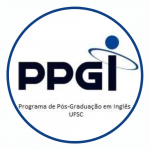Convite – PPGI Lecture
Olá, no dia 18 de junho (terça-feira) acontecerá o evento PPGI Lecture ministrado pelo Professor Bernhard Angele intitulado “Auditory distraction during reading: Evidence from eye-tracking”
Título: Auditory distraction during reading: Evidence from eye-tracking
Data: 18/06/2019
Horário: 10h00
Local: Machado de Assis, 4º andar, Bloco B, CCE/UFSC
Abstract:
Much of our reading in daily life occurs in the presence of background sounds such as speech, noise, or unexpected sounds in our environment. The influence of background sounds on reading is not well understood because most studies have only considered the end product of reading (i.e., comprehension) rather than the ongoing reading process. In four experiments, we investigated the effect of background speech, noise, and deviant sounds on online reading behaviour. Meaningful background speech affected sentence integration processes and re-reading behaviour, but had little if any effect on initial word processing. Meaningless speech (i.e. speech in an unfamiliar language) had very limited effect on eye-movement measures, thus suggesting that distraction by background speech is mostly semantic in nature. The increase in re-reading fixations by meaningful speech was found to support reading comprehension processes. Finally, readers’ eye-movements were sensitive to rare and unexpected deviant sounds presented in a sequence of a repetitive sound. The theoretical implications of the results will be discussed.
Biography:
After completing my undergraduate Diplom degree in Psychology in Potsdam, Germany, in 2008, I spent several years at the University of California San Diego, USA, as a doctoral student investigating how skilled readers process upcoming words. I received my PhD degree in 2013. I have been at Bournemouth University since 2013 and am currently a Senior Lecturer in Psychology, where I teach on the Cognition and Language and the Advanced Statistics units. My research primarily focuses on eye movements during skilled adult reading and language processing. Specifically, I have been studying the effect of parafoveal preview, that is, the ability to pre-process an upcoming word before fixating it with one’s gaze, on processing and reading performance. Currently, I focus on how visual attention and language processing combine in order to make efficient reading possible. Specifically, how do readers allocate their attention to follow lines of text and shift their gaze at the proper rate for language processing? Has the attentional system adapted to hold back information until the language processing system is ready to receive it? Or has the language processing system developed the ability to process multiple words at the same time? Eye-tracking methods offer a way to investigate this question. Recently, I have studied how both the sentence context and the general environment in which someone reads can affect word identification. This includes factors such as syntactic restrictions, visual noise, and auditory background input. I am also involved in several collaborations with researchers in China, Spain, and Germany.
Contamos com a presença de todos!








